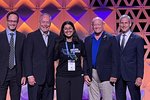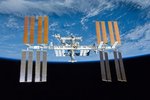Genes in Space Announces Five Finalist Teams for 2025 National Competition
● Student Scientists Compete for the Opportunity to Launch Their Biotechnology Experiments to the International Space Station in 2026
May 22, 2025, Cambridge, MA – Genes in Space, the pioneering STEM competition that challenges students to design biotechnology experiments for space, today announced the five finalist teams for its 2025 national contest. These exceptional young scientists will now advance to the final round, where they will compete for the ultimate prize of launching their DNA experiment to the International Space Station in 2026.
The finalist teams were selected from a competitive field of high school and middle school submissions from across the country. This year, 759 teams submitted proposals to the competition, representing a record 263 schools across 41 states and territories. In addition to the five Finalists, the program has also awarded ten Honorable Mentions. Each team has designed an innovative experiment that addresses a real challenge or opportunity in space exploration using biotechnology.
“We’re incredibly impressed by the creativity and scientific rigor demonstrated by this year’s finalists,” said Dr. Sebastian Kraves, Co-founder at Genes in Space. “These students are tackling complex scientific questions with original approaches that have real potential to advance our understanding of how life functions in space.”
2025 Finalists:

Ethan Liaw (18) from William P. Clements High School in Sugar Land, Texas
Topic: Tracking the Competitive Inhibition of 5-LOX Enzyme under Microgravity Conditions using FRET

Ronald Chen (18) and Tsz Hang Ko (17) from Stuyvesant High School in New York, NY
Topic: FSH-blocking Antibody as a Countermeasure for Spaceflight-Induced Bone Loss
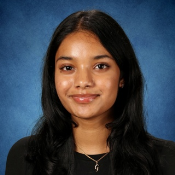
Geethika Burugupally (17) from Lake Washington High School in Kirkland, WA
Topic: Combating Antibiotic Resistance in Space: How Anti-CRISPR Proteins Impact Horizontal Gene Transfer
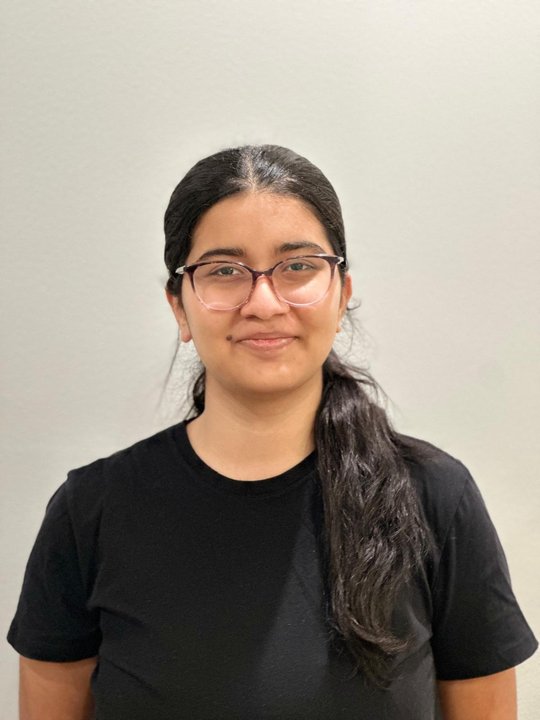
Nitya Johar (16) from Skyline High School in Sammamish, WA
Topic: Lost In Translation: How Microgravity Could Be Confusing Your DNA's Language
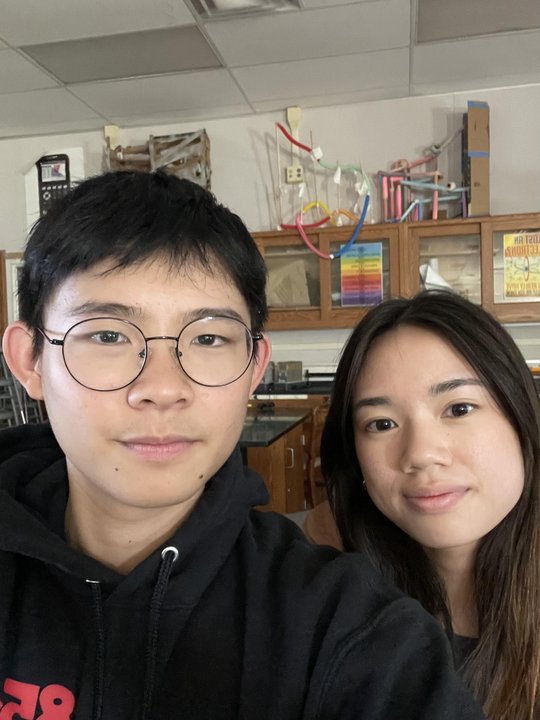
Raymond Le (17) and Jacquelyn Phan (17) from Westminster High School in Westminster, CA
Topic: Tracking HIF-1α/ARNT Heterodimerization as a Source for Erythropoietin Suppression in Space Anemia.
The five Finalist teams will now refine their proposals with guidance from mentors in the field. They will present their final experimental designs to a panel of scientists, educators, and space experts at the ISS Research & Development Conference in Seattle in July 2025. The winning team will work with scientists to prepare their experiment for spaceflight to the International Space Station in 2026.
About Genes in Space™
Genes in Space, founded in 2015, is a national STEM contest that challenges students in grades 7 through 12 to design DNA analysis experiments using the ISS National Lab, a platform for cutting-edge research that enables future space exploration. The contest is a collaboration between miniPCR bio™ and The Boeing Company, with support from the ISS National Laboratory and New England Biolabs®.
For more information about Genes in Space and this year's finalists, visit www.genesinspace.org
Media contacts:
miniPCR bio: Marc Bliss, genesinspace@minipcr.com, +1 (781) 990-8727
Boeing: Rosa Bañuelos, rosa.i.banuelos@boeing.com, +1 (321) 313-3134


